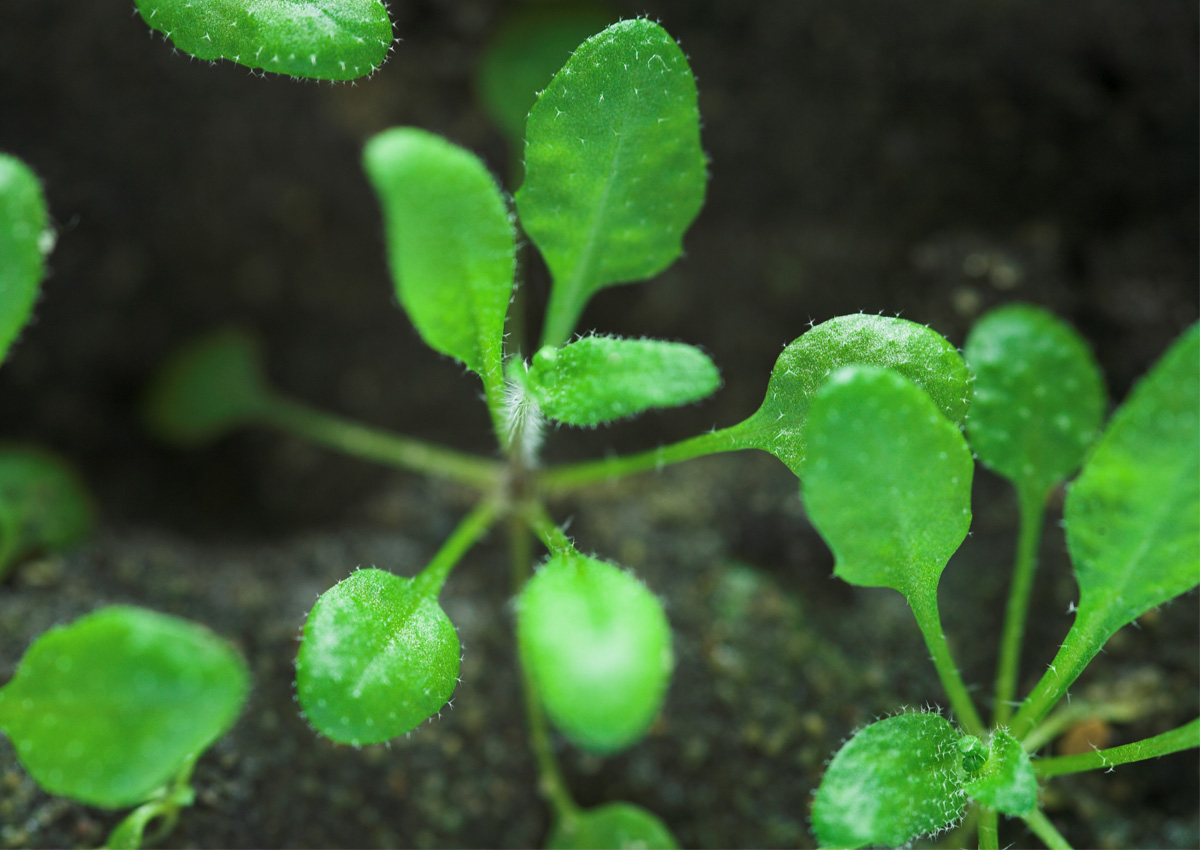
Research Team Discovers Strategy to Make Plants More Salt Tolerant
December 9, 2020| |
A research team from the Centre for Research in Agricultural Economics (CRAG) has found that plants are more tolerant to soil salinity by regulating the TEMPRANILLO (TEM) genes. These findings open up new possibilities in the development of plant varieties that are better adapted to climate change.
The study, led by researcher Soraya Pelaz, reveals the crucial role that TEM genes play in protecting plants from increased soil salinity, one of the major limiting factors for crop production. To discover how TEM genes regulate plant growth under saline conditions, the CRAG team analyzed mutant Arabidopsis plants with excess and deficiency of TEM grown in saline soils. Plants under high concentrations of salt flower later and produce almost no seeds, but the study found that mutant plants with TEM deficiency flower earlier, thus producing seeds, so their shorter life cycle allowed them to escape the blockage of growth caused by salt.
"The results we present in this study provide new strategies to regulate plant growth in saline soils: who knows if in the near future we will be able to use TEM genes in rice breeding programs?" concludes Pelaz.
For more details, read the article in CRAG News.
| |
You might also like:
- Pocket K No. 31: Biotechnology with Salinity for Coping in Problem Soils
- Functional FLN2 Vital in Salinity Tolerance of Rice
- Salt Tolerant Rice Variety Developed in India
Biotech Updates is a weekly newsletter of ISAAA, a not-for-profit organization. It is distributed for free to over 22,000 subscribers worldwide to inform them about the key developments in biosciences, especially in biotechnology. Your support will help us in our mission to feed the world with knowledge. You can help by donating as little as $10.
-
See more articles:
-
News from Around the World
- International Study Decodes the Genome of 15 Wheat Varieties
- International Animal Biotech Webinars Wrap Up for 2020
- ISAAA Webinar: Global Status of Biotech Crops and the Philippine Adoption Experience
- Locust Genome Could Help Find Solutions to Pest's Swarming Behavior
- International Research Team Publishes Barley Pan-Genome
- Filipino Researchers Develop Motion Tracker for Eggplant's Most Vicious Pest
- Biotech Maize Area in Vietnam Expands to 92,000 Hectares
- Research Team Discovers Strategy to Make Plants More Salt Tolerant
-
Research Highlights
- Ectopic Expression of a Grape Nitrate Transporter Boosts Nitrogen Use Efficiency in Arabidopsis
- GM Birch Tree Study Shows Promising Results Against Insect Herbivores
-
Plant
- Two Studies Reveal Retron's Function and its Genome-editing Potential
-
Health
- COVID-19 Test Uses CRISPR and Smartphone Camera
-
Read the latest: - Biotech Updates (January 21, 2026)
- Gene Editing Supplement (December 17, 2025)
- Gene Drive Supplement (February 22, 2023)
-
Subscribe to BU: - Share
- Tweet

